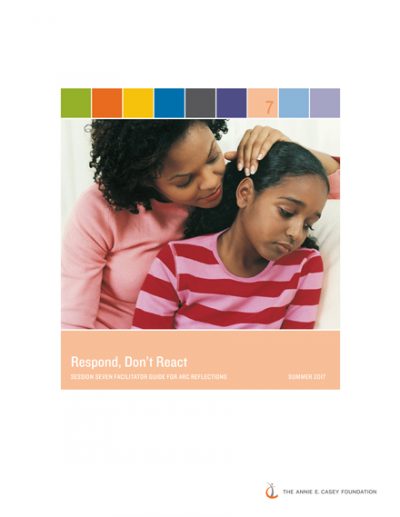Supporting Development
Supporting children and teens in solving problems is an important strategy for building their awareness of choices, helping them feel empowered and giving them a voice in their lives.

The Casey Foundation and the Justice Resource Institute developed ARC Reflections, a training curriculum to develop foster parents and caregivers’ understanding of traumatic stress, increase their own emotional regulation and provide tools to support their parenting skills. In session seven, participants will be taught steps for thinking about ways to respond to the often very complicated behaviors of children and teens in their care. Caregivers are encouraged to respond, not react; and to use their praise and reinforcement, problem-solving and limit-setting strategies purposefully.
Every session includes a check-in to increase awareness and engagement of participants; a facilitator checklist of session materials; practice activities and take home log for participants; a representative case study to follow throughout the sessions; and reflective questions for participant growth and understanding.
Survival trumps other values and needs. Observing behaviors will tell you something about the needs and drives a child or teen is experiencing in a given moment. For instance, if the behavior is aggression or tantrums, it may suggest that there is an underlying survival need driving behavior. The child’s or teen’s brain is responding to the perception of danger, and until that is addressed, higher needs take a backseat.
We hope you'll find value in this report. We’d love to get a little information from you, which we'll use to notify you about relevant new resources.